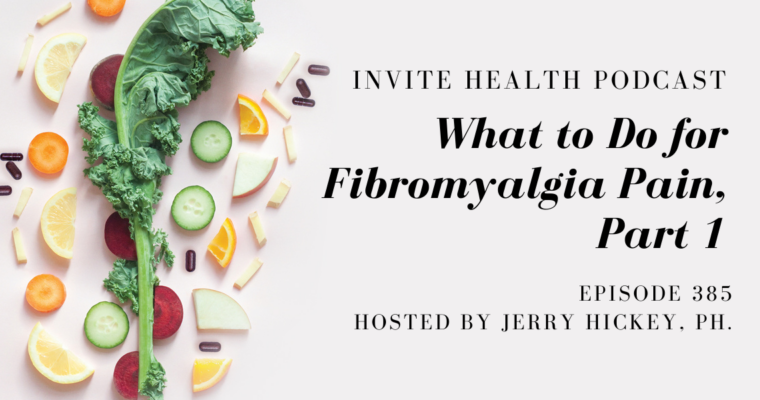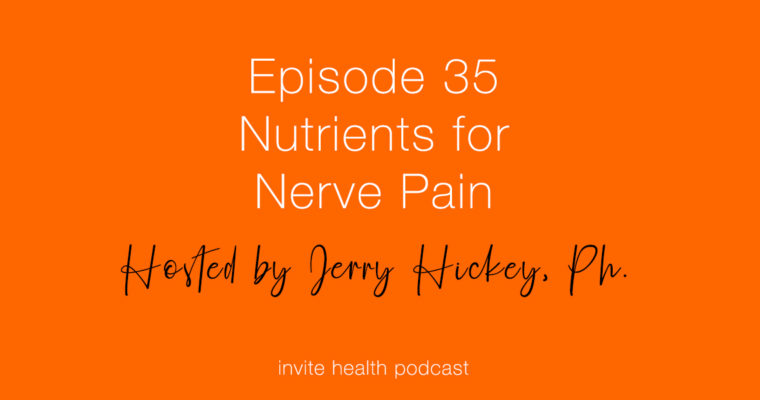arthritis
InViteⓇ Health Podcast, Episode hosted by Jerry Hickey, Ph.
Subscribe Today!
NSAIDs are very commonly used drugs. They’re used for arthritic pain, inflammation, autoimmune diseases, fevers and more. The problem is that they’re not without real issues for your health. An example would be ibuprofen or naproxen. Millions of people casually take these almost on a daily basis. They can increase your risk of having a heart attack, developing a blood clot and having heart failure. They even affect your hearing and vision. They can damage your kidneys and trigger asthma attacks in certain people. I’d like to discuss this today so people know what they’re up against. I think the toxicities and side effects of these drugs are shrugged off by most people. The good news is that there are really good substitutes and alternatives for these arthritis drugs.†
The problems with using NSAIDs for arthritis pain
All NSAIDs come with a black box warning. The next time you get a prescription for celecoxib or other NSAID or the next time you buy ibuprofen or naproxen, look at the paper inside. Right on top is the highest level of warnings from the FDA. If it gets any worse than this, they recall the drug from the market. It’s called a black box warning and it warns about how these drugs can impact cardiovascular health, digestive health, vision health, hearing and more.†
HOW NAC SUPPORTS HEALTHY HEARING – INVITE HEALTH PODCAST, EPISODE 211. Listen Now>>
There are new guidelines for cardiovascular health that came out a week or two ago. Experts are now saying that NSAIDs such as aspirin should not be used for primary prevention of a heart attack since the harm caused by the drug outweighs the good.†
If you have severe arthritis pain in your back or your knee, you can take the NSAID drugs for three to five days, but using it for longer than that is dangerous. Yet somewhere along the road, somebody decided it’s okay to use these dangerous medications every day.†

Alternatives to NSAIDs
If you have a mildly irritated, painful knee, there are natural things that will help that pain that are not dangerous for you. There are true supplements that really work for your knee that actually seem to slow down the loss of joint tissue and protect the cartilage. One of them would be undenatured type II collagen, which is called UC-IIⓇ. This helps pull the immune system away from the joint and seems to help prevent the joint from getting worse. For people with mild to moderate pain, the pain is usually gone within the first month. For people with really severe knee pain, the pain is generally gone by the second month. I’ve even had some people who were diagnosed with bone-on-bone arthritis by their orthopedic doctor tell me that their bone-on-bone pain went away using the UC-IIⓇ.†
MY MORNING HEALTH CONCOCTION – INVITE HEALTH PODCAST, EPISODE 452. Listen Now>>
Another supplement that can really help you is well-absorbed turmeric. Don’t just buy curcumin. You want the complete plant. The research shows that the complete plant is much better for helping a knee with arthritis than just using the curcumin alone because the whole plant contains other ingredients that are great for inflammation. Another plant ingredient that really helps with discomfort from arthritis is frankincense. The frankincense is called boswellia serrata and it contains ingredients that are great for the pain that you see with arthritis. When you mix the turmeric with the boswellia, it’s very effective for stiffness, joint pain, protecting the knee, range of motion, walking and quality of life.†
In this episode, Jerry Hickey, Ph. explains why the use of NSAID drugs for arthritis can be dangerous for the body. He details how these drugs are toxic to the body and offers alternative suggestions for nutrients that can help with arthritis symptoms.†
Key Topics:
- How common is NSAID usage?
- The updated black box warning found with many NSAID drugs
- What are prostaglandins?
- Can arthritis drugs actually accelerate arthritis and its symptoms?
Thank you for tuning in to the InViteⓇ Health Podcast. You can find all of our episodes for free wherever you listen to podcasts or by visiting www.invitehealth.com/podcast. Make sure you subscribe and leave us a review! Follow us on Facebook, Twitter and Instagram at InViteⓇ Health today. We’ll see you next time on another episode of the InViteⓇ Health Podcast.










